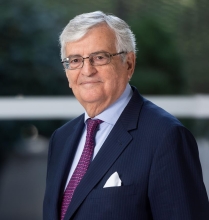Organic Law 13/2015 amending the Criminal Procedure Law to strengthen procedural guarantees and regulate technology-related investigation measures

On October 6, 2015 the Official State Gazette (BOE, issue 239) published two laws amending the Spanish Criminal Procedure Law: an organic law, Organic Law 13/2015, of October 5, 20155, to strengthen procedural guarantees and regulate technology-related investigation measures; and another, ordinary, law, Law 41/2015, of October 5, 2015, to speed up the criminal justice system and strengthen procedural guarantees.
The reason given by the Spanish legislature for approving two separate laws amending the Criminal Procedure Law at the same time lies in the different types of matters covered: as opposed to those that have a direct impact on, complement or develop fundamental rights and public freedoms –which article 81.1 of the Constitution requires to be regulated by an organic law–, others are strictly procedural matters which are not, purely speaking, a necessary complement to organic matters and may therefore be regulated in an ordinary law; these two different types are as follows:
- Amendments to matters in the Criminal Procedure Law which need to be implemented by organic law (Organic Law 13/2015): provisions in which an attempt is made to strengthen the procedural rights of criminal defendants and of people who have been arrested or are held in custody -these provisions introduce new terminology such as “investigado” (“investigated” person) referring to a suspect under investigation in an examining phase and “encausado” to an accused person within criminal proceeding (once he or she has been indicted)–; and the laying down of specific rules for the restrictive technology-related investigation measures in article 18 of the Constitution.
- Matters not required to be implemented by organic law (Law 41/2015): provisions intended to speed up the criminal justice system to try to avoid unnecessary delays; the putting in place of a separate confiscation proceeding; the procedure resulting from acceptance of a decree; general establishment of the second instance; broadening of the cassation appeal; and reform of the special appeal for review.
Contacts



